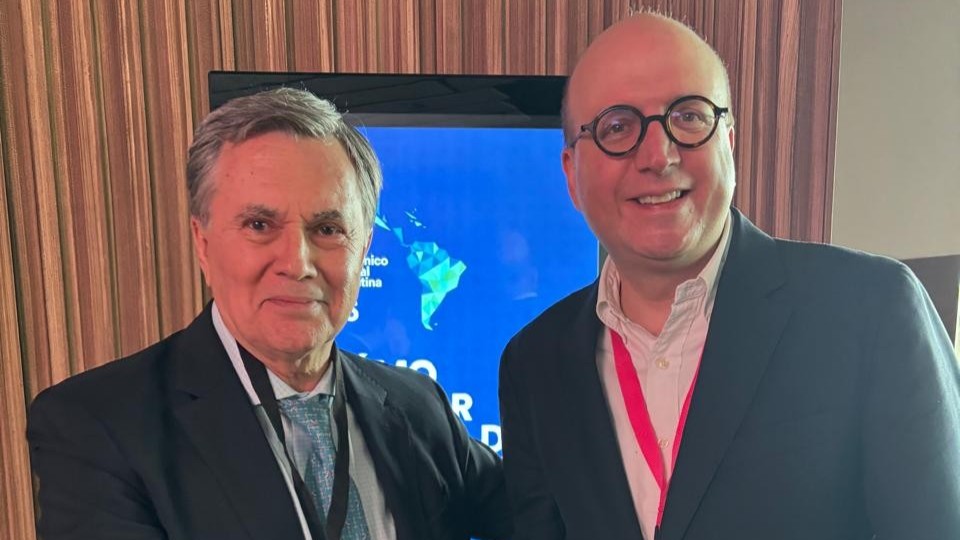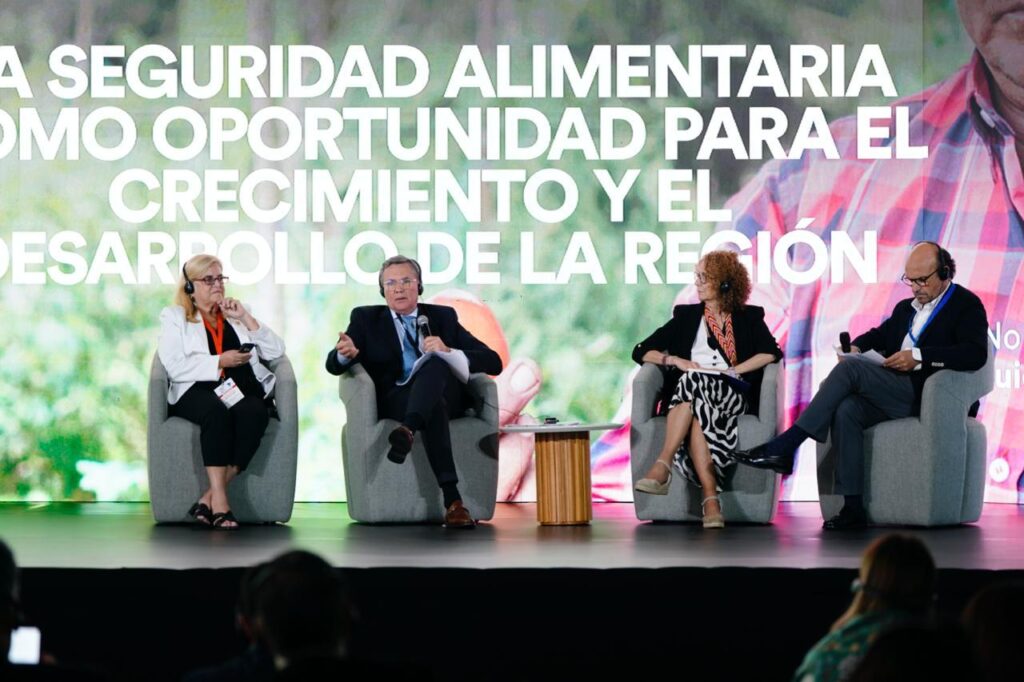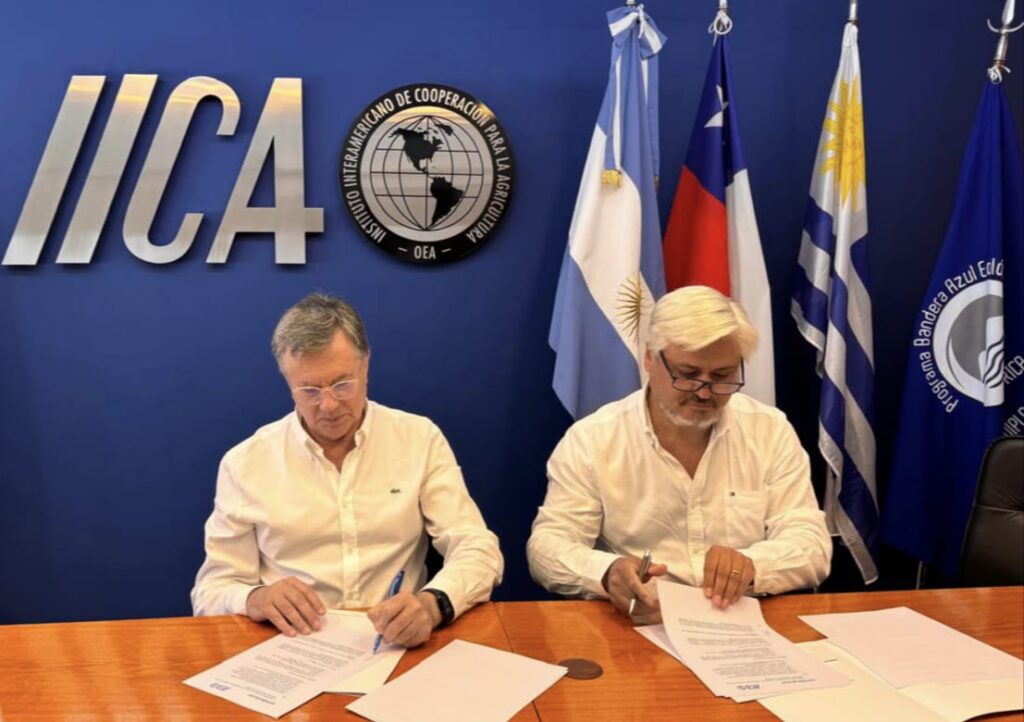Voluntad política, ser integrados en la formulación de políticas públicas, acceso real a la tecnología y el financiamiento; y potenciar el rol vital de la agricultura familiar en la seguridad alimentaria, fueron las áreas destacadas por los jóvenes de la ruralidad que participaron en un foro del IICA.
San José, 16 de junio, 2020 (IICA). Jóvenes rurales de las diferentes regiones de América Latina y Caribe (ALC) expusieron necesidades, desafíos y su visión para incidir de forma efectiva en propuestas de políticas públicas y en la construcción de una nueva agricultura tras el covid-19.
Los jóvenes, líderes vinculados a emprendimientos, la caficultura, el medio ambiente y la academia, intercambiaron ideas en el inicio de una serie de foros virtuales organizados por el Instituto Interamericano de Cooperación para la Agricultura (IICA), que busca darles voz y contribuir a derribar las barreras que frenan su desarrollo en la ruralidad.
“Parte de nuestro trabajo y de nuestras prioridades es darle voz a la juventud, ponerla al frente de las políticas y acciones que los involucran. Es la generación del presente y por eso la colocamos al frente de la construcción de la nueva agricultura que está surgiendo con mucha fuerza”, aseguró el Director de Cooperación Técnica del IICA, Federico Villarreal.
Voluntad política, ser integrados en la formulación de políticas públicas, acceso real a la tecnología y la digitalización, así como al financiamiento para sus emprendimientos, fomentar el trabajo en redes y potenciar el rol vital de la agricultura familiar en la seguridad alimentaria, fueron las áreas donde los jóvenes pusieron el acento.
“La opinión, conocimientos y experiencia de los jóvenes debe ser escuchados, tenemos que participar en la creación de estrategias; que las políticas que se implementen estén bien enfocadas, porque conocemos las barreras, oportunidades y visiones que tenemos en el tema agrícola”, dijo Andrea Paredes, caficultora guatemalteca y representante centroamericana en el foro virtual.
María Alejandra Mata, emprendedora de la región andina, desmenuzó parte de las realidades que afrontan a diario las juventudes rurales y que se han acentuado con la pandemia: pobreza, falta de acceso a servicios de salud, educación, información y conectividad, lo que incide en la permanencia de los jóvenes en el campo.
“Aquí en Venezuela se nos hace muy difícil, tenemos problemas diarios de servicios públicos, ahora el inconveniente de la falta de combustible. Es problemático seguir enfocados con el emprendimiento, con la agricultura; con el Covid-19 muchos han perdido las cosechas, pero siempre se busca la manera de encontrar soluciones”, contó la joven.
Ante panoramas como este, el representante de la región norte y licenciado en Ciencias Políticas y Administración Pública, Aztatl Anzaldo, apuntó que entre los desafíos centrales del agro está “lograr que la juventud rural se quede en el campo, teniendo las condiciones, conocimientos y el acceso a las herramientas que le permitan producir y vivir dignamente”.
“Los gobiernos, las organizaciones no gubernamentales, los sectores empresariales y la sociedad civil organizada deben trabajar en equipo para elaborar políticas públicas que generen un impacto real y significativo en esta problemática”, agregó este asesor de organizaciones que promueven iniciativas y proyectos de conservación ambiental, biodiversidad y agricultura bioresiliente, entre otras.
Durante el foro los participantes ahondaron en cómo será la agricultura tras la pandemia para este sector de la población, las oportunidades que arrojará para ellos, cómo deben organizarse para influir en las realidades que actualmente viven como juventud rural, así como estrategias para visibilizar las problemáticas que enfrentan en cada uno de sus países.
“Es una gran oportunidad de capacitarnos, trabajar en conjunto y de revalorizar nuestra agricultura. Es fundamental generar redes y potenciarlas a nivel local e internacional, generar sinergia entre distintas disciplinas y utilizar los medios de comunicación que se masificaron con la pandemia para digitalizar más el medio rural, empezar a combinar la extensión tradicional con los medios digitales para acompañar a productores y jóvenes”, complementó la representante de la región sur y licenciada en Gestión Agropecuaria, Noelia Kelly.
El representante de la región Caribe y fundador de Algas Organics, Johanan Dujon, añadió que todo lo planteado será posible si hay voluntad política y apoyo de sectores clave como el privado.
“Los escenarios planteados son deseos en voz alta, mucho de lo que esperamos y queremos los jóvenes está fuera de nuestro control, se requiere tiempo hacer políticas, depende de los políticos. Además, necesitamos acceso a financiamiento, cosa que tradicionalmente el sector no ha recibido y si eso no cambia, nada cambiará post Covid-19”, mencionó.
En el foro hemisférico denominado Juventudes rurales construyendo la nueva agricultura post Covid-19, el Director del Centro Latinoamericano sobre Juventud (CELAJU), Ernesto Rodríguez, repasó justamente cómo deberían ser esas políticas públicas y qué se requiere para la eficaz inserción de la juventud rural en la esfera política, económica y productiva.
“Se deben dotar de perspectiva generacional y no solo crear espacios específicos para la juventud. Los jóvenes son actores protagónicos de los medios rurales y de desarrollo en general, porque están más capacitados que la generación anterior, tienen una relación más dinámica con las nuevas tecnologías y están preparados para asumir los desafíos del siglo XXI. Su empoderamiento es muy importante, y que sea reconocido y valorado”, concluyó Rodríguez.
El próximo evento virtual de esta serie será el 30 de junio, que recopilará las experiencias, perspectivas y recomendaciones de la juventud rural de las regiones Caribe y Norte. Se transmitirá a través de la Sala Virtual de Videoconferencias del IICA, por Facebook Live y el canal de YouTube del IICA.
Más información:
Federico Villarreal, Director de Cooperación Técnica del IICA.










